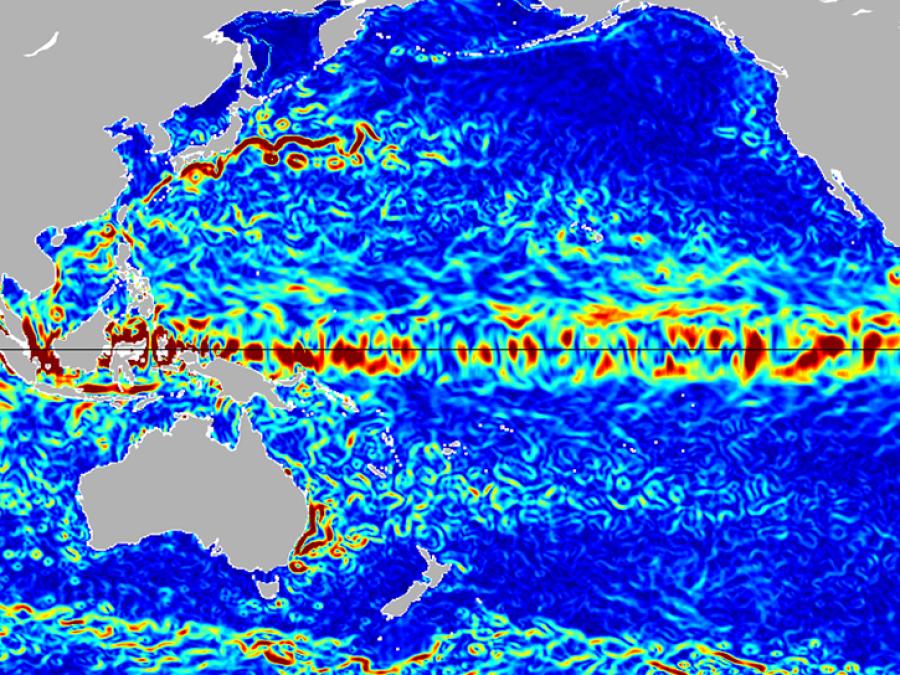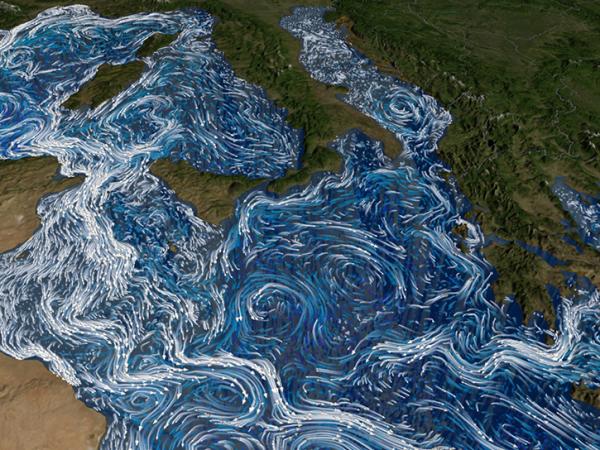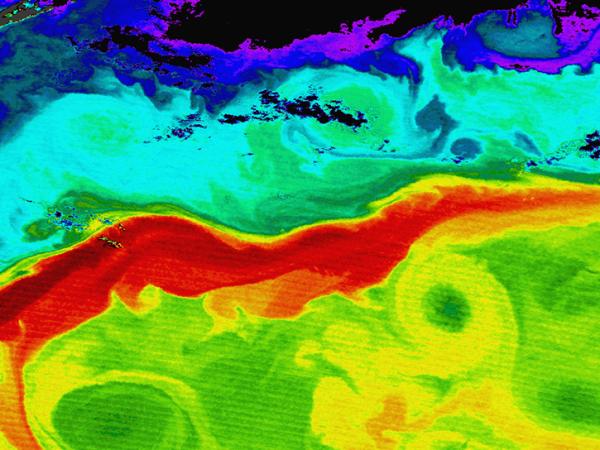Sample data holdings include Aquarius/Satélite de Aplicaciones Científicas-D (Aquarius/SAC-D), Soil Moisture Active Passive (SMAP), Gravity Recovery and Climate Experiment (GRACE/GRACE-FO), NASA Scatterometer (NSCAT), Quick Scatterometer (QuikSCAT), Rapid Scatterometer (RapidScat), Cyclone Global Navigation Satellite System, Sentinel-6, Group for High Resolution Sea Surface Temperature (GHRSST), Oceans Melting Greenland (OMG), Salinity Processes in the Upper Ocean Regional Study (SPURS), Surface Water and Ocean Topography (SWOT), Observational Products for End-Users from Remote Sensing Analysis (OPERA), Estimating the Circulation and Climate of the Ocean (ECCO), and Making Earth System Data Records for Use in Research Environments (MEaSUREs). See a full list of data holdings below. The datasets and more are available through Earthdata Search and other data tools.
PO.DAAC also provides continuously updated resources for users through The PO.DAAC Cookbook - a resource to find data recipes and tutorials for PO.DAAC datasets, tools, and services, and example access mechanisms for both GUI and programmatic tools.Any questions related to PO.DAAC data can be sent to the Earthdata Forum.



